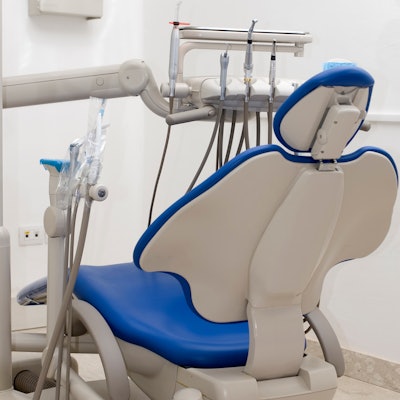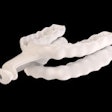
The U.S. Department of Justice Civil Rights Division published on January 12 a notice of a proposed rule in the Federal Register that aims to improve access to medical diagnostic equipment (MDE), including dental chairs and x-ray machines, for people with disabilities.
The proposed rule change under Title II of the Americans with Disabilities Act seeks to adopt technical standards that spell out how state and local health facilities like hospitals and clinics, as well as organizations that contract with the entities, would need to follow to meet existing obligations under the law. Public comment on the proposal ends on February 12.
“Without accessible MDE, individuals with disabilities may not be afforded an equal opportunity to receive medical care, including routine examinations, which could have serious implications for their health,” according to the proposal.
The department has received many complaints from individuals with disabilities that they have difficulty obtaining routine and preventive dental and medical care due to inaccessible MDE. For example, patients with disabilities cannot get weighed accurately when given anesthesia before surgery due to inaccessible equipment like scales, according to a press release issued by the department.
In 2017, the U.S. Access Board issued technical standards on the accessibility of equipment in doctors’ office, clinics, hospitals, and medical settings. If finalized, the current proposal would make the standards enforceable under the ADA by incorporating them into the ADA Title II regulation.
Furthermore, the proposal calls for prohibiting state and local entities from denying dental and medical services that they would otherwise provide to a patient with a disability because they lack accessible equipment. If finalized, these providers could require a patient with a disability to bring someone with them to help during an exam, according to the proposal.
Additionally, the proposed rule states that equipment bought, leased, or acquired after the rule is finalized must be accessible until they have the required number of pieces that can be used by patients with disabilities. Moreover, the entities would have to address barriers resulting from a lack of existing accessible diagnostic equipment by providing services at another location or making home visits. Staff would also have to be trained to use accessible equipment, according to the proposal.
“This groundbreaking rule marks a significant milestone in the Justice Department’s efforts to remove barriers that people with disabilities face when accessing medical care,” the division’s Assistant Attorney General Kristen Clarke said in the release.




















